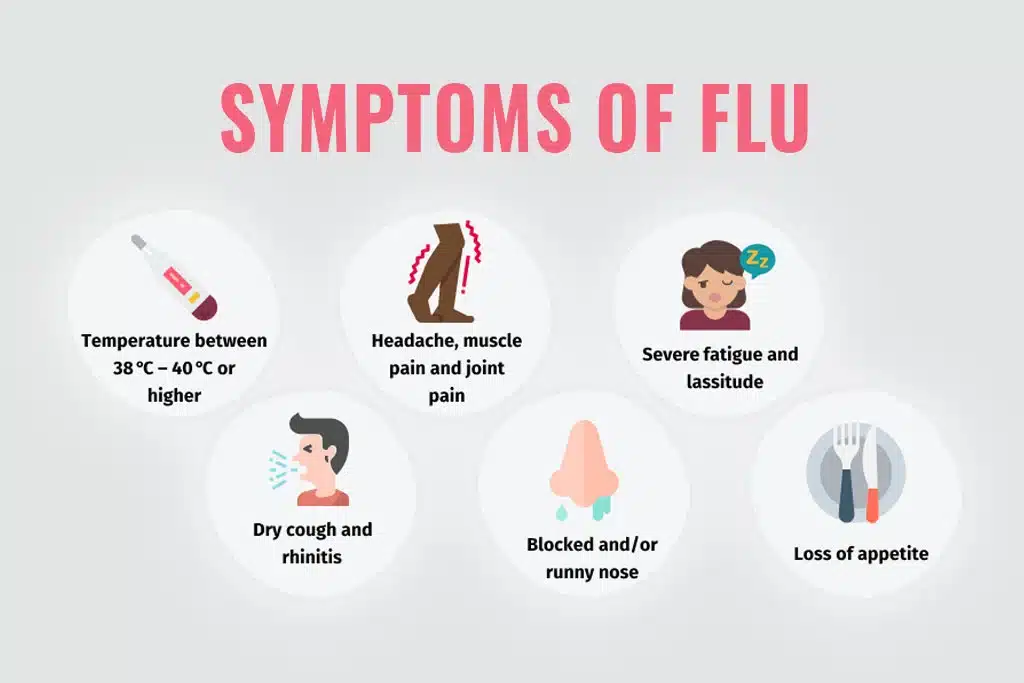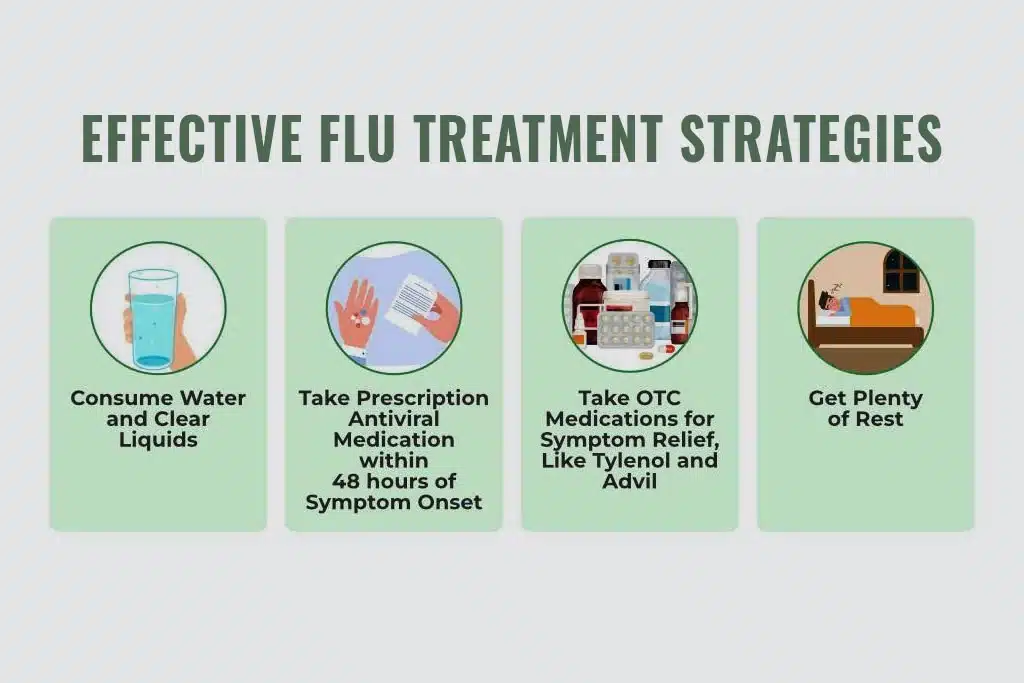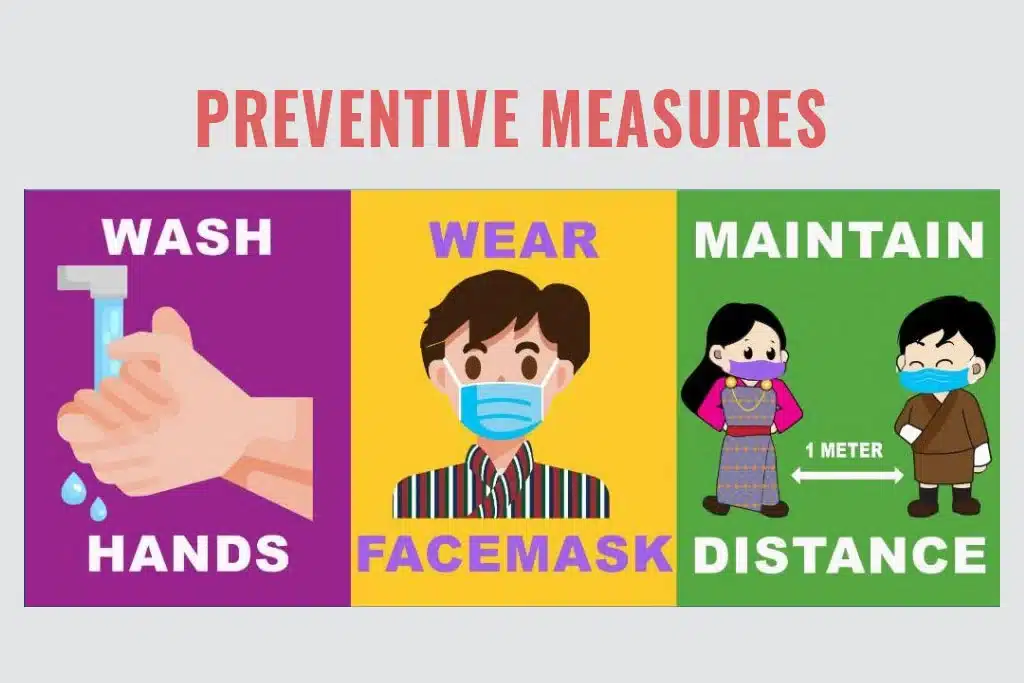Are you infected by the flu and seeking detailed information on how to deal with it? Welcome, you are almost there. It is an acute illness of the respiratory system that is caused by the influenza viruses that damage primarily the mucus membranes covering the mouth, nose, and lungs. Such a disease may include malaria and diphtheria which might even cause death in extreme circumstances. At the ER of Watauga, we offer reliable diagnostic tests, effective treatment, and specialized approaches to flu patients. You can trust us to acquire unmatched and personalized healthcare.
we will help you know how to differentiate between Influenza A and B, how to identify the symptoms, effective treatment, and preventive measures. Realizing the symptoms such as nasal congestion, fever, cough, and headache, and dealing with the disease including taking medicines and staying home when sick are vital for a quick recovery and staying healthy through the flu season.
What is the Flu?
The flu is caused by influenza viruses and the ones most often can cause seasonal epidemics due to influenza A and B virus types that are circulating and affecting humans. Influenza virus just infects the respiration tract and it leads to symptoms that may be mild or severe and sometimes threatening enough that a patient needs to be hospitalized.
Flu Types: Influenza A vs. Influenza B
Understanding the differences between flu types can help you better comprehend the potential impact of the illness:
Influenza A: While compensating for large-scale disease incidents and smaller-scale epidemics during a season. It has subtypes based on two proteins on the surface of the virus: two glycoproteins, hemagglutinin (H) and neuraminidase (N). These include H1N1 and H3N2(Probably should use H1N1 and H3N2).
Influenza B: However, it usually only causes milder epidemics as compared to the pandemic types but they can lead to severe cases of illness. It does not have subtypes but is divided into two lineages: pears from both Yamagata and Victoria.
When Does Flu Season Start?
The prime flu season starts in the autumn and goes through the winter, whereas, the most active period is from December till February. Nevertheless, when is it on and how long it takes vary for all the years, and during winter, flu viruses circulate all the year.
Symptoms of Flu

The identification of common signs of flu is the initial step toward timely and appropriate treatment. Symptoms can vary but typically include:
- Fever or feeling febrile
- Cough
- Sore throat
- Runny or stuffy nose
- Muscle or body aches
- Headaches
- Fatigue
- Throwing up and frequently having loose bowel motions (mostly seen in children)
How Long Does the Flu Last?
Generally, the flu symptoms end after seven to fourteen days of suffering. Moreover, the immune reaction period of time differs based on the specific characteristics of an individual’s immune system and whether or not the person was vaccinated. A large proportion of those hit with this illness will feel better after only a few days, but some may still have lingering symptoms that can last for up to two weeks.
How Long Are You Contagious?
That person with the flu is more contagious than those with already little visible symptoms through the first three to four days after they have fallen ill. Nevertheless, you can infect people at an early stage when you do not know you are sick whereas you also can infect them at the time you have symptoms. An adult may be infected from one day before the symptoms are observed and last up to seven days after being affected.
Effective Flu Treatment Strategies

Antiviral Medication
Avirals possess the power to speed up the process of recovery from other illnesses and also lessen the symptoms. They are strikingly efficient when done so 2 days or so after the appearance of symptoms.
Antiviral drugs for influenza include:
- Oseltamivir phosphate: To take oseltamivir, you may have to take a pill or liquid orally. That’s when you normally do it for up to 10 days.
- Zanamivir: Through mouth inhalation using an inhaler, the zanamivir is breathed in. Normally, you will have to be treating you with it for more than one day. Zanamivir should also be avoided by people who are prone to breathing problems, like asthma and COPD.
- Peramivir: They infuse the drug into your bloodstream via an IV line, this way. You need just a one-time dose of routine Peramivir.
- Baloxavir marboxil: You will swallow baloxavir marboxil either in a table as a pill or in a liquid form. This cures in only one dose. Baloxavir shouldn’t be your go-to option if you’re expecting or nursing, staying in a hospital, or are unable to take care of yourself because of health issues.
Be sure to discuss with your healthcare provider any existing conditions that you may have before commencing the antiviral therapy.
What to consider while taking Antivirals for Flu?
Antiviral medicines are prescribed under particular situations according to the treatment. Antiviral medications may lower your chances for a more severe condition and cut you short of the time when you are sick. The majority of patients especially those not allergic to the common flu simply do not require such (prescription) medications. Antivirals can be prescribed if you:
- Facing symptoms for less than 48 hours? With antivirals, it is much less certain that you will follow the symptoms after the first 48 hours. The virus was already has been making another copy of itself, and you have already started fighting it off with your Antigens.
- Have an underlying condition that can easily develop into a severe form of the disease. In such a case you are at risk. Your providers can consider prescribing an antiviral too, even if you have already been experiencing symptoms longer than 48 hours.
- Seek emergency services if symptom enhancement including difficulty in breathing, chest pain, disorientation, or pressure on the head and heart are encountered even in sickness of more than 48 hours.
Take care of or lead people who are in the risk group for more serious complications of flu.
Rest
Proper sleeping and resting should never be neglected, because they allow the body to overcome the infection.
Hydration
The most crucial thing that you should keep in mind if you are already suffering from a cold is the amount of fluids you have imbibed. In addition to the fever, sweating, and blowing your nose, one could accidentally be prone to dehydration.
Pain Relievers
The painkillers manufacturers sell without prescription can be used to treat body temperature, say, sore throat, and any form of pain. Nonetheless, these drugs must be prescribed and used according to the pharmaceutical label.
Preventive Measures

- Vaccination: The best and the most vigorous way to forestall the flu is through vaccination once a year. The vaccine decreases the probability of flu disease and being in the hospital or dying from the virus and can help in having a less rough time if you get the injection but still get sick.
- Hygiene Practices: Frequent washing, especially of hands, and use of tissues to cover diminish the probability of flu passing.
The Role of Flu Shots
An aim of flu shot is to reduce the risk of infection to the prevailing influenza viral strains, selected for production by research. It takes approximately two weeks after the inoculation for the antibodies to develop in the vaccinees’ bodies.
Understanding Flu Complications
Although the majority of people will defend themselves almost immunity, some may become a host of severely manifested illnesses. Such complications as bacterial pneumonia, otitis media, sinusitis, and the exacerbation of chronic congestive heart failure, asthma, or diabetes are not uncommon.
Conclusion
Flu is an illness that can hurt you, however knowing the symptoms, treatments, and preventative measures, will assist you manage the sickness more effectively if you become sick. An annual influenza vaccination and regular hygiene etiquette are the most effective ways to prevent the flu, although it may be a common respiratory illness sometimes it can be severe. You have to protect your health during a flu season because your body’s wellness is your top priority plus it is selfish to let others around you be sick. ER of Watauga is your go-to emergency room providing individualized care and diagnostic tests to deal with flu infection. We employed state-of-the-art tools and technology and an experienced team of physicians to ensure exceptional treatment strategies. Contact us now to book an appointment or to get further information.
FAQs
What are the differences between Influenza A and Influenza B that are crucial?
Influenza A is most commonly associated with high-manner outbreaks and pandemics which are divided into subtypes; depending on the protein, either H1N1 or H3N2. Influenza B, on the other hand, generally causes milder epidemics and is divided into two lineages: The silk routes are integral in the study of trade, commerce, and culture between Europe and Asia. Seasonal flu can be caused by both types of influenza but type influenza A is by itself more severe.
Do the flu shot we are taking give enough protection rate and who is the target population supposed to take it?
The effectiveness of the yearly influenza shot ranges depending on different years, however, it cuts out the risk of severe sickness, getting admitted to the hospital, and dying generally. Based on the CDC’s recommendations, everyone 6 months of age and older should get vaccinated each year for influenza. This is the most effective way of tackling influenza and its possibly fatal aftereffects.
Is it worth visiting a doctor or I am just having a cold?
Flu ailments often resemble a cold with a familiar picture but are usually way more serious and develop suddenly. Some of the symptoms of flu include sudden onset of high fever, muscle pain, profound exhaustion, and dry cough. Colds are generally milder and target the nose by producing a lot of discharge.
When does the interactive session start and can I be able to treat flu symptoms myself?
Once you understand the symptoms, ensure that you care for yourself; eat healthy foods, take plenty of water for your body to function efficiently, and if your doctor has given you necessary medications, take them as prescribed. They are more successful at preventing nerve-related damage and paralysis when started within the first 48 hours of symptom onset. In addition to nonprescription pain relievers, people can turn to for symptom alleviation, but they should be sure to carefully adhere to the provided product guidelines.
What is long the period of the contagion after I got the flu, and how can I stop spreading it?
Sickness often becomes a contagious condition starting 1 day before the first symptoms appear and can last up to 5 to 7 days after the disease begins. To avoid transmission of the flu, stay at home while you are sick, cover your coughs and sneezes with a tissue and then wash your hands, and maintain social distancing, primarily keeping your distance from people who commonly have serious complications from the flu.






